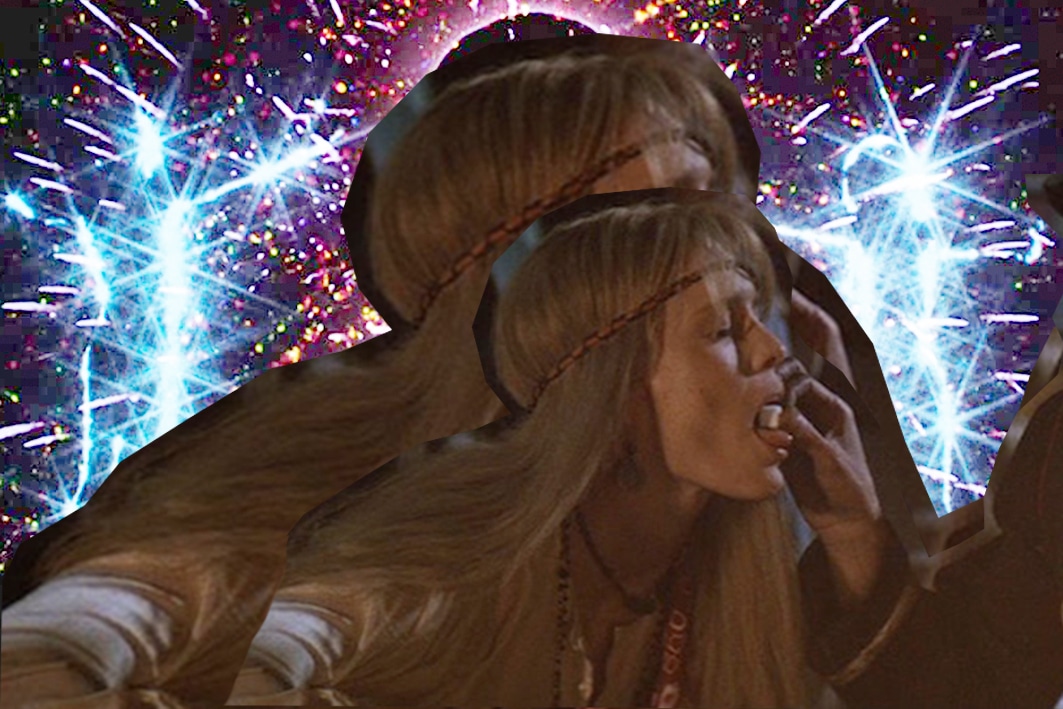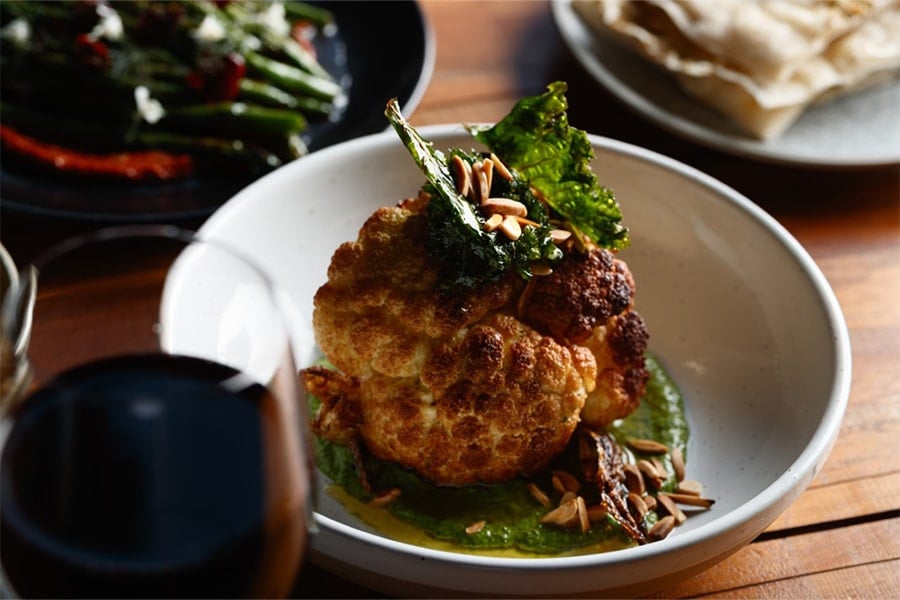
When I began my research on microdosing psychedelics over six months ago, it was a topic that had just begun to enter the mainstream conversation. Fast forward to now, deep into the second half of 2021, and it’s making significant headway as the next potential breakthrough treatment for mental health issues.
A revival of psychedelics is upon us. Offered in ceremonies by local shamans to bring folks closer to the meaning of life; routinely popped by Silicon Valley heavyweights to increase productivity; explored and endorsed by an increasing amount of wellness-leaning celebrities; and used in a flood of clinical trials with results that point, with a steady hand, to the fact that a mental health revolution is imminent, and psychedelics are at the epicentre.
The ancient medicinal modality used for centuries by myriad of cultures first began to pique the interest of scientists in the 1950s as a modern therapy option for mental health issues, and was quickly squashed by politicians who, at that time, were on the precipice of making millions via the psychiatry industry and the newfound use of tranquilisers to treat conditions such as anxiety. In the two decades between 1950-1970, the US federal government poured millions of dollars into over a hundred studies of LSD (which was first synthesised by Albert Hofmann). And the drug, alongside psilocybin was made widely available to researchers.
Unfortunately, due to the time in which they were conducted, the studies were difficult to control, and by the 1960s, psychedelics had entered the mainstream and swept through counterculture. This was until Richard Nixon's war on drugs in the 1970s, where he swiftly signed the Controlled Substances Act, which put most psychedelics on Schedule 1, prohibiting their use for any purpose. Shortly after that, research came almost to a complete halt, the drug was demonised, and it didn’t pick back up again until the 1990s.
The 90s saw a revival of interest in psychedelics as a form of therapy on a neurobiological level, and the net was cast wider to include drugs such as MDMA and Ketamine. In 2021, studies continue to this day to further the evidence scientists have been collecting for decades that suggests psychedelic treatments for mental health conditions can yield life changing results.
Psychedelic treatment for mental health issues
Tania de Jong of Mind Medicine Australia, a registered charity launched in 2019 to help educate and raise awareness of psychedelic treatments for mental health, feels that psychedelic treatments can be used to target “a variety of mental illnesses, including depression, post-traumatic stress disorder, and addictions,” as per hundreds of clinical trials that have already been conducted. “Psychedelic assisted therapies have now been filed in over 160 trials around the world, particularly psilocybin and MDMA assisted therapies.” She notes. “After just two to three medicinal treatments in medically controlled environments, 60 to 80 percent of patients are going into remission, versus existing remission rates from existing treatments.”
There are endless conversations to be had on the topic of psychedelics being used as a treatment method for mental health conditions and the challenges it faces from a legislative perspective, but the buzzword that has been most frequently thrown around in the past years, is microdosing. And the rise and rise of the trending and often self-prescribed treatment is on many people’s minds.
What is microdosing?
Microdosing, which usually involves dosing oneself with tiny amounts of psychedelics (one-20th to one-tenth of a recreational dose), is most frequently used as a means to enhance life, just a little bit. Vastly different from the psychedelic macrodose - which, when used properly in a controlled environment, can result in psychological breakthroughs such as what is commonly referred to as an “ego death”, and the concept of “self” being stripped from us bare – microdosing has been steadily clambering its way past stigma and demonisation for years, and providing users with an overall more illuminated experience of life.
“It can certainly increase productivity and creativity for some patients, or some people suffering with depression, they use it instead of an antidepressant.” De Jong says.
What can it offer us?
John, 33, has been dabbling with psychedelics for over a decade. After dealing with bouts of depression of varying degrees of severity since his youth and having little luck with antidepressants, he has most recently been on a three-month course of 200mg of psilocybin every 3rd day (which according to him is on the macro end of a micro dose).
“Whether placebo or not, every three days I have to stop and take a capsule meant to boost assertiveness and productivity,” he explains when I ask about the ways his current regime has benefitted him. “I stop and think about what I need and want to achieve in the days ahead and this act in and of itself can be self-fulfilling. I do feel more at ease, and I have written some good pieces, I think. Work is going very well and personally things are going good to.”
Unsure if specifically down to his treatment plan specifically, one of the reasons John was drawn to the idea of microdosing was after reading Johann Hari’s Lost Connections, a journalistic deep-dive into the causes of depression and anxiety and an exploration on myriad of solutions.
Derek Beres is a journalist and the author of Heroes Dose, an examination of Beres’ quarter-century journey with psychedelics and a review on their role in mental health treatments. Beres has been personally experimenting with psychedelics since the 90s, and believes that psychedelics are uniquely qualified to address some of the greatest social problems of our age.
“Whatever you're talking about, depression, anxiety, PTSD, addiction, these are, to some extent, environmental problems, much more than genetic problems. So when you live in an environment that humans are very mismatched for, psychedelics have been used ritualistically for a very long time,” Beres explains. “And that ritual is a communal endeavour, even though it's very specific, like take Ayahuasca – even though you're in your own world for that time, you're still in a ceremony in a circle with other people.
So it can really promote the idea that you can think about other people and you can empathise with them. I don't think if everyone just dropped psychedelics, all the worlds issues will disappear, but could actually impact that if we had more ritual use in this country. And the psychedelic ritual is a very powerful way of connecting people.” He says.
For Beres, he believes that pharmaceuticals still play an important role in people’s lives, but that in the modern world, the issue of access – especially in America, where Beres lives and works – makes it difficult for people to access the mental health support that they need. And while he doesn’t believe that psychedelics could or should replace all pharmaceuticals that aim to treat mental health issues, there may be a bigger market for them than imagined.
“I think that for a number of people, they could replace any sort of pharmaceuticals. You know, specifically, the the benzodiazepines, SSRIs, snris. Because in America, our healthcare system is such that it's very easy to get a prescription to these drugs, and it's very expensive to engage in psychotherapy,” he says. “Any sort of meta analyses that have been done, have shown that SSRIs and benzos work better in conjunction with psychotherapy than on their own.” He continues ,“because you just need to talk to people, like a lot of times, it's that loneliness, or that inability to communicate, especially in a digital age, where everyone's staring at a screen instead of looking around. It's there, it's it can feel very lonely. And so that talking is the most efficacious way of dealing with a lot of problems. Not all problems, but a lot of problems.”
Especially when our society is set up in a way that leaves such protocols to only be accessible for the wealthy. “It's like a result of capitalism, and then capitalism is what screws you when you need help.”
How does it work?
Put simply, psilocybin affects the pathways in the brain that are linked to serotonin. When these pathways are affected, they have to opportunity to form new ones, which have the ability to break us out of deep-rooted psychological patterns. These are the moments where people often experience the “ego death”, and where researchers have made the connection between psilocybin’s role in changing brain connections and forming new ones, which ultimately has the potential to help people out of depressive patterns and states.
Australian legislation around microdosing
The biggest barrier in furthering the research around this connection lies with legislation. Fortunately for Australia, the Australian government announced earlier this year that they would provide a $15 million fund towards psychedelic research for mental health.
This change is at the basis of De Jong’s work at Mind Medicine. “We've started the first certificate in psychedelic assisted therapies in the southern hemisphere.” She explains, “And a number of therapists and doctors have started to graduate from that certificate programme, which has world class faculty and has outstanding feedback coming through for the training. So our goal is to train as many therapists as possible as we can in Australia broadly and regionally so that these treatments can become available to patients, no matter where they're based, or their financial circumstances.”
Mind Medicine, alongside many other charities working in this space, are trying to get such treatments into the medical system in Australia, especially after experiencing so many desperate people wanting to find a solution to their mental health struggles when so many traditional avenues of treatment haven’t worked.
“As an individual, as Tanya, I would say that every person deserves to understand what an expanded consciousness looks and feels like.”
However, even with the efforts of organisations like Mind Medicine and the urgency these charities and practitioners are feeling with the current mental health crisis in our country, breaking down the stigma around psychedelics as a whole has, and continues to prove a huge challenge. But with the conflation of morality and the societal barriers that are in place, paired with the increasing social and scientific curiosity about these alternate therapies, De Jong notes that time is of the essence for patients to start experiencing these treatments ethically and safely.
“The longer it takes for these medicines to become available, above ground in medically controlled environments, the more people will go underground,” she warns, “the more people will then hang out their shingles underground. And there will be more risks in those environments, which are unregulated.
So at the moment, where we have a situation where we have this massive mental health epidemic, more and more people are looking for these treatments, because they're desperate, and they want to get well, people are going to go and find treatments that they find work for them. So the sooner that we can make sure that these treatments are accessible and available, the better,” she says.
Which poses the question, with the drive to commercialise these drugs rising, combined with a growing movement to liberalise existing prohibitions, is there a greater risk if not handled correctly by regulators?
The commercialisation of psychedelics
“It will help a lot of people but it's also going to do great damage.” Beres believes. “Because basically, the main way that microdosing is being presented as, is as a productivity enhancer, and a focus aid, which is people need. And when you're investing tens or hundreds of millions of dollars into r&d right now, which is happening and investments in these companies. You're not going to make a return on your investment if people only taking these drugs once a year.
"And charging $500 for a ketamine infusion is not feasible for most people. So what better way than to create the psychedelic version of CBD?” he asks, which would essentially be a very diluted version of even a micro dose, and rely heavily on placebo in order to turn profit.
“There is also the debate of how to honour and pay for indigenous communities that have cultivated the rituals of this, which I feel like most companies are going ignore that entirely.” He also warns of the issue around patenting, and the idea that people are already trying to tweak certain molecules in order to patent versions of psilocybin, and the issue of healthcare, which once again in America presents another layer of roadblocks.
Ultimately for Beres, it comes back to ritual – something that he is concerned will be lost with the commercialisation of the drug.
“I think it's the blurring of the lines between mental health and ritual that it gets kind of weird to me. I'm all for any mental health treatments that are better than what's on the market now. But the confusion of that with the macrodosing and ritual use, I think, is going to negatively impact the ceremonial aspects of it.”



